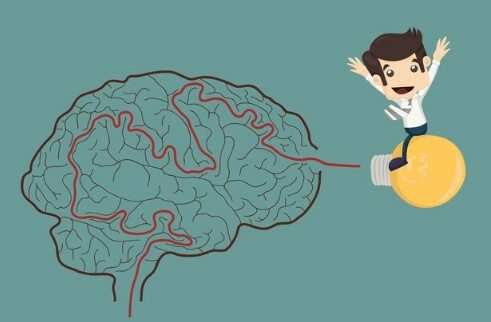“Soup is just a way of screwing you out of Empty Stomach.”
–Jay Leno
“The only time to eat diet food is while you’re waiting for the steak to cook.”
–Julia Child
Judge Joseph Wapner was the groundbreaker for courtroom reality television. His show The People’s Court was the first one to take real people and real courtroom cases and turn them into television entertainment. What Perry Mason was for Matlock, Judge Wapner was for Judge Judy, Judge Brown, and the whole slew of other knockoffs who appear on daytime television nowadays.
Over 12 years, Judge Wapner presided over 2,484 cases. That’s roughly a case a day if you assume 200 working days. The Judge would listen to one case, ask a few questions, watch the litigants yammer, and issue his decision. Then, he’d go off to golf or make jokes about wigs and long robes, or whatever it is that judges do in their spare time.
For most judges, though, it’s not that easy. They sit and watch case after case after case. Probably at about 3:00 PM, they start getting hunger pangs and watching the clock. As a study from Columbia University shows, the judgments get harsher as the judges get hungrier.
Judges aren’t the only ones who are susceptible to poor decision-making when they’re hungry.
Hunger affects all of us and alters our thinking and our actions, and not just in our trips to the refrigerator.
How Hunger Enables Monkey Brain

Have you ever been really hungry? I’m talking about the fact that I haven’t eaten in 24 hours and am ready to bite my hand off. Have you tried reading a book when you’re in that state? Talking to people? Engaging in deep philosophical thought? It’s impossible, isn’t it? All you can think about is food. Images of a knife slicing into a steak or a nice big salad fill your mind’s screen. You can’t think about anything beyond the five minutes it’s going to take for that microwave to cook your meal, can you?
It’s Monkey Brain. He’s taken over. All he can think about is the present and getting food in your belly. Nothing else matters.
As a study from the University of South Dakota shows, lower glucose levels in the blood cause you to significantly discount the value of future rewards when compared to present rewards. Monkey Brain is convinced that you’re going to starve to death when there are low blood sugar levels, goes into panic mode, and does anything necessary to fight off the hunger.
Monkey Brain goes to extremes to get what he wants when he’s hungry. A study from Oxford and the University of Aarhus shows that hungrier individuals will take more of a set of resources and will coerce others in attempting to share. However, while taking more than their fair share of resources, these people view themselves as being cooperative and supporting social welfare.
It’s the Wimpian Bargain: a hamburger today for payment on Tuesday. Except, Monkey Brain takes it even further by saying that doing so is promoting social good and making everyone happy. He justifies his actions by appealing to altruism while encouraging you to grab just one more burger from the pile.
He’s good for it!
What this really means is that you’re much more likely to take decisions which favor the present over the future. So, for example, if you’re hungry and you’re sitting in the HR meeting where they tell you about enrollment in your 401(k) program, Monkey Brain is going to disregard the future when you’ll need income. He fears not having enough money to go grab that snack right after the HR meeting. As a result, you don’t enroll in the 401(k) program and hamstring your future retirement efforts. But that banana is sure going to taste good, isn’t it?
How do we beat Monkey Brain back?
- Eat a meal before going grocery shopping. This is pretty well-known, and was even documented in 1974. Going shopping on an empty stomach will distort how much food you need and send you home with a cart full of Funyuns.
- Eat a meal before entering into negotiation for a large purchase. Whether it’s a house, a car, furniture, or prepaying medical procedures, you want to be in full control of your faculties to get the best deal possible. Otherwise, Monkey Brain is going to accept the first number offered to get you out of there to head to Taco Bell.
- Eat a meal before making major investment decisions. Whether it’s the HR 401(k) meeting or the annual rebalancing exercise, don’t do it on an empty stomach. If you’re susceptible to Monkey Brain, he’s going to try to get his adrenaline pumping by convincing you to be a day trader.
- Don’t consume artificial sweeteners. Having what your body expects as a jolt of sugar that doesn’t actually raise glucose or increase your caloric consumption sends all sorts of conflicting signals to the body. Monkey Brain goes into panic mode because of the perceived bait and switch, and causes you to value the future even less.
Author Profile
- John Davis is a nationally recognized expert on credit reporting, credit scoring, and identity theft. He has written four books about his expertise in the field and has been featured extensively in numerous media outlets such as The Wall Street Journal, The Washington Post, CNN, CBS News, CNBC, Fox Business, and many more. With over 20 years of experience helping consumers understand their credit and identity protection rights, John is passionate about empowering people to take control of their finances. He works with financial institutions to develop consumer-friendly policies that promote financial literacy and responsible borrowing habits.
Latest entries
 Low Income GrantsSeptember 25, 2023How to Get a Free Government Phone: A Step-by-Step Guide
Low Income GrantsSeptember 25, 2023How to Get a Free Government Phone: A Step-by-Step Guide Low Income GrantsSeptember 25, 2023Dental Charities That Help With Dental Costs
Low Income GrantsSeptember 25, 2023Dental Charities That Help With Dental Costs Low Income GrantsSeptember 25, 2023Low-Cost Hearing Aids for Seniors: A Comprehensive Guide
Low Income GrantsSeptember 25, 2023Low-Cost Hearing Aids for Seniors: A Comprehensive Guide Low Income GrantsSeptember 25, 2023Second Chance Apartments that Accept Evictions: A Comprehensive Guide
Low Income GrantsSeptember 25, 2023Second Chance Apartments that Accept Evictions: A Comprehensive Guide

